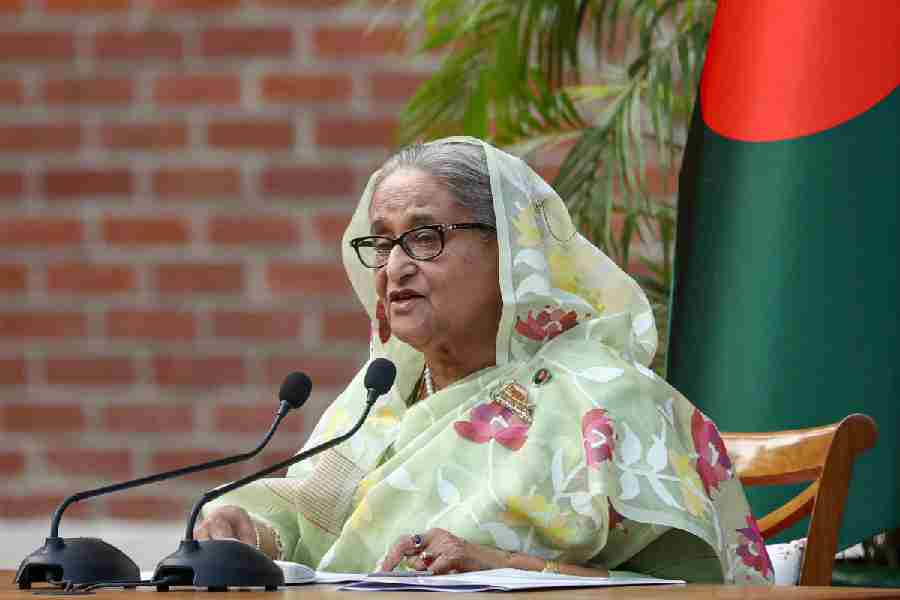The visit by Sheikh Hasina Wajed, the prime minister of Bangladesh, to New Delhi last weekend was both deeply symbolic and substantial for relations between India and Bangladesh that need each other as trusted partners and, yet, must navigate a complex friendship. Ms Wajed was making her first official visit to another nation since her re-election in January, days after dropping by for the swearing-in of the prime minister, Narendra Modi. The first full-fledged visitor to come for a meeting with Mr Modi since his re-election, Ms Wajed also made the trip days before she is due to fly to Beijing, New Delhi’s bête noire, for talks. That she chose to travel to India first is a significant message to New Delhi on the primacy that Dhaka places on their relationship. It is now important for India to acknowledge and reciprocate that message at a time when China is increasingly impacting South Asia as well as New Delhi’s ties with its neighbours. In their talks, Mr Modi and Ms Wajed agreed to strengthen maritime cooperation and the security partnership. They committed themselves to bolstering rail transport between the nations in a bid to boost bilateral trade and people-to-people interaction. Yet, it is the Teesta river, for long a source of unease in the bilateral ties, that emerged as the biggest potential source of hope from the dialogue between the leaders.
More than a decade after the neighbours had to shelve a plan to share the river’s waters following opposition from the West Bengal government under Chief Minister Mamata Banerjee — she still remains firmly opposed to a water-sharing plan — Ms Wajed continues to face political pressure domestically on the issue. China has proposed a mammoth plan to develop the infrastructure around the river that serves as a lifeline for millions of people in Bangladesh. Beijing is Dhaka’s largest trading partner and China is the biggest supplier of raw materials for Bangladesh’s garment industry, which brings 80% of Bangladesh’s export revenue. That, along with the pressure to actually deliver on the Teesta’s development, means that Ms Wajed cannot be expected to reject China’s offer simply because of India’s insecurities. Mr Modi and Ms Wajed agreed that an Indian team would visit Bangladesh to explore the Teesta’s potential infrastructure development. If successful, this approach could serve as a template for New Delhi’s relations in the region, where, instead of asking friends to choose between China and India, it must promise and deliver on its own initiatives. But for New Delhi to deliver on the promise, Mr Modi and Ms Banerjee must reach a consensus on the tricky problem that is Teesta.











